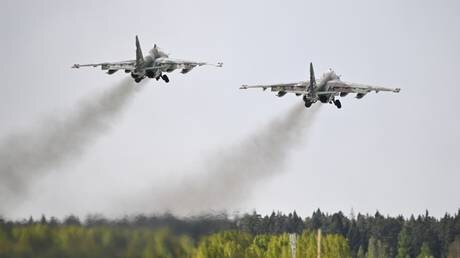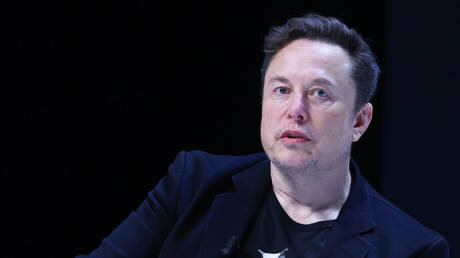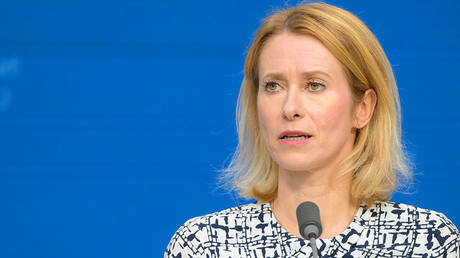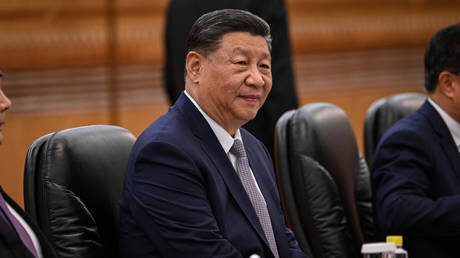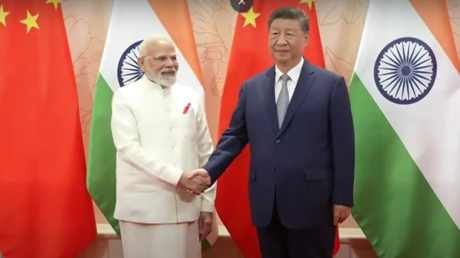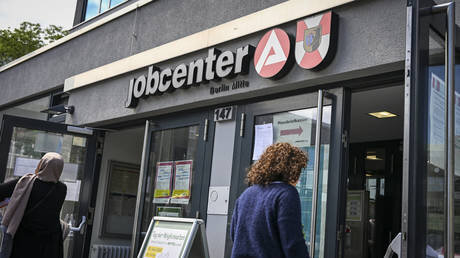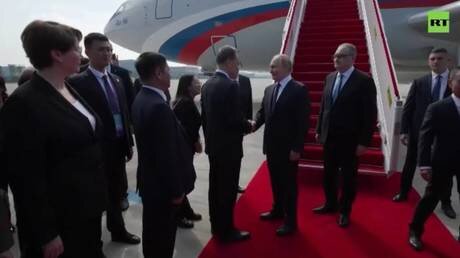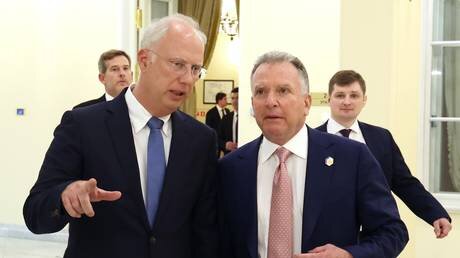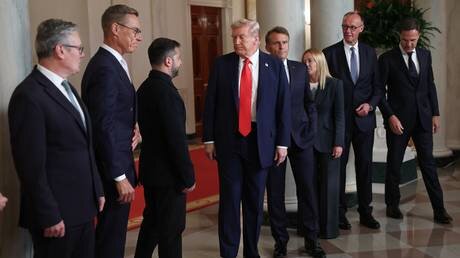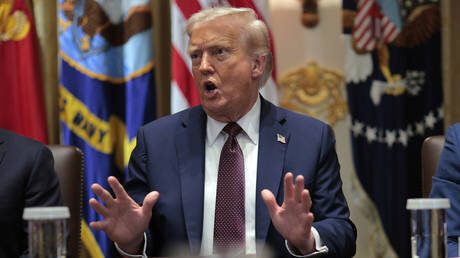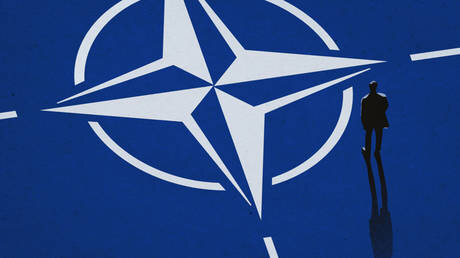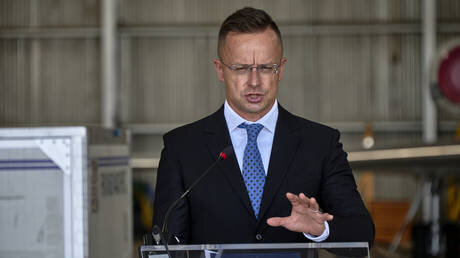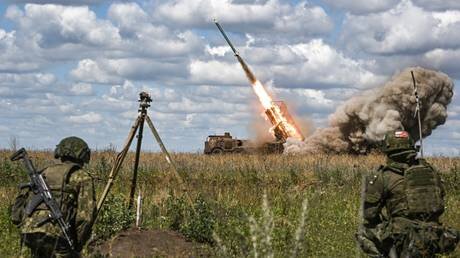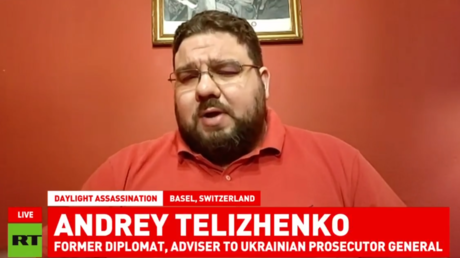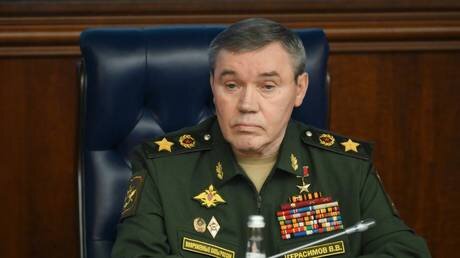
Everything posted by American Women Suck
-
Skill of the Week: Heel-And-Toe Shift
An important part of manhood has always been about having the competence to be effective in the world — having the breadth of skills, the savoir-faire, to handle any situation you find yourself in. With that in mind, each Sunday we’ll be republishing one of the illustrated guides from our archives, so you can hone your manly know-how week by week. First used as a necessary technique for pre-WWII clunky gear mechanisms, heel-toe shifting is largely unnecessary for daily drivers (if not impossible since most cars today have automatic transmissions!). Used mostly by motorsports professionals in high-octane cars and motorcycles, it’s not really something you need to learn unless, of course, you want to feel like a professional motorsports driver when you run to the store to get milk. In which case, you should absolutely learn how to do it. The fancy footwork of heel-toe shifting does have a lot of benefits. It reduces stress on the transmission, keeps the weight of your vehicle balanced during gear changes, helps to prevent wheel lock, and allows smoother and more efficient acceleration around corners. At its core, heel-toe shifting is a way of getting around the fact that we don’t have three legs. Utilized mostly when approaching corners, it’s used to match engine speed (RPMs) to road speed through gear changes. When you approach a corner and apply the brake, your car slows down and engine speed drops. Coming out of the corner, to compensate for your reduced speed, you shift into a lower gear, but depressing the clutch only causes engine speed to drop faster. By the time you’re ready to release the clutch in 2nd gear, the engine is practically idling even though you’re still rolling along at a good clip. When you do release the clutch, the engine has to race to catch up with the rest of the car. These big swings in engine speed vs. road speed are highly inefficient and make all the difference in high-end racing, where smooth acceleration around a corner is critical. Heel-toe shifting maintains engine speed so that it stays constant with your road speed, maximizing efficiency and power. To accomplish this, your brake foot rotates so that you can operate the throttle and the brake simultaneously during gear changes. Sound complicated? Follow the guide above, do some practicing, and you’ll have it down in no time. Like this illustrated guide? Then you’re going to love our book The Illustrated Art of Manliness! Pick up a copy on Amazon. This article was originally published on The Art of Manliness. View the full article
-
3-second tech genius
⚡️ 3-second tech genius: Don’t keep your laptop plugged in all the time. Heat and stress wear down lithium-ion batteries. Let it cycle between 30% and 80% for longer life. The post 3-second tech genius appeared first on Komando.com. View the full article
-
Narrative podcasts are dead
🎙️ Narrative podcasts are dead: In the mid-2010s, shows like “Serial” blew up with multi-episode investigations and gripping interviews. Now they’re vanishing (paywall link). Why? They’re too expensive and take too long to make. So if your favorite true crime podcast is no longer updating, you know why. The post Narrative podcasts are dead appeared first on Komando.com. View the full article
-
Russia strikes Ukrainian port infrastructure – MOD
Kiev has acknowledged damage to energy facilities in Odessa Region Russian forces have carried out a long-range strike on Ukrainian port infrastructure used by Kiev’s military, according to a statеment released on Sunday by the Defense Ministry in Moscow. The ministry said that Russian tactical aviation, drones, missiles, and artillery had struck coastal targets “used in the interests of the Armed Forces of Ukraine and a Norwegian-made NASAMS air defense system” that was protecting them. However, neither the exact whereabouts of the targets nor other details were provided. The ministry added that the bases of Ukrainian troops and foreign fighters in more than 150 locations were also attacked. Meanwhile, Ukrainian media shared pictures of large fires in the coastal Odessa Region. Energy company DTEK said four of its power facilities in the region had been hit overnight. Local officials confirmed the damage, adding that the city of Chernomorsk, not far from Odessa, and its surroundings bore the brunt of the attack. “The enemy massively attacked the Odessa Region with strike drones,” officials said, adding that "fires broke out in some places, but were quickly extinguished by our rescuers". “One person is known to have been injured,” officials noted, adding that more than 29,000 people were left without electricity. Russia has for months been targeting Ukrainian military-related industrial sites, defense enterprises, as well as port and energy infrastructure. Moscow has said the strikes are retaliation for Ukrainian attacks inside Russia that often hit critical infrastructure and residential areas, and maintains that it does not target civilians. View the full article
-
Microsoft squeeze
Microsoft squeeze: If your email ends in @onmicrosoft(dot)com, heads up, Microsoft is putting strict new limits on you. Why? Because spammers abused the system. Starting Dec. 1, you’re capped at 100 external emails per day. If that’s you, it’s time to buy a real domain, or risk your messages bouncing. The post Microsoft squeeze appeared first on Komando.com. View the full article
-
Sleep deeper, wake brighter
🌙 Sleep deeper, wake brighter: NativePath Collagen nourishes your skin, strengthens joints and restores vitality while you rest. Today, receive a bonus supply of Collagen PM, get 45% off, free shipping and a bonus frother. Transform your nights and your mornings, starting now! The post Sleep deeper, wake brighter appeared first on Komando.com. View the full article
-
Labor Day backyard bliss
💡 My pick: Outdoor string lights (29% off) Instant patio upgrade! String them up, grab a drink and feel like you’re at a rooftop bar. ☔ Windproof travel umbrella (32% off): Holds up in 85 mph winds. 100K+ reviewers gave it a stellar 4.5 stars. 😅 Portable neck fan (61% off): Forget waving a paper plate. This keeps you cool, hands-free on hot days. 🦟 Mosquito repeller (30% off): Ditch the sticky bug spray. Create a 20-foot bug-free zone around your patio. 👄 Organic lip balm set (17% off, six flavors): Dry, cracked lips? These hydrate so they stay silky smooth. 🛒 Fire up the grill and your cart: Tap here to see all the Labor Day markdowns before they’re gone. There’s even more on my Amazon page. We may earn a commission from purchases, but our recommendations are always objective. The post Labor Day backyard bliss appeared first on Komando.com. View the full article
-
Germany blocks EU sanctions on Israel
The proposed measures won’t impact Israel’s military action in Gaza, Foreign Minister Johann Wadephul has said Germany has blocked the European Commission’s latest proposal to sanction Israel over the war in Gaza, Foreign Minister Johann Wadephul has said. Israel has faced growing backlash over its conduct in the conflict, accused of allowing almost no aid into the enclave. Several Western states have announced plans to recognize a Palestinian state, and in some cases, scale back military and trade cooperation with Israel. The European Commission last week proposed suspending Israel’s participation in the Horizon Europe research program, cutting off funding for Israeli start-ups in drone technology, cybersecurity, and AI. This was intended to pressure Israel to improve humanitarian aid deliveries, according to a draft resolution. Speaking to reporters on the sidelines of an EU meeting in Copenhagen on Saturday, Wadephul said Germany rejected the plan, as it was “not convinced” that curbing Israel’s access to EU research funds would influence its military action. Instead, he noted that Berlin has already restricted the delivery of weapons that can be used in Gaza, suggesting Brussels should focus on similar steps. “I believe this is a very targeted measure, one that is very important and very necessary,” he said. EU foreign policy chief Kaja Kallas acknowledged on Saturday that the bloc is divided on the issue, and that she is “not very optimistic” that ministers will reach an agreement soon, even though it does not require full unanimity. She added that some states want stronger economic pressure. Denmark, which holds the EU’s rotating presidency, recently signaled support for tougher sanctions, such as suspending trade with Israel. Spanish Foreign Minister Jose Manuel Albares and his Slovenian counterpart, Tanja Fajon, have condemned the EU’s inaction over Gaza. Fajon told Bloomberg this week that the bloc has not imposed “a single measure” against Israel, contrasting it with the bloc’s unity in sanctioning Russia over the Ukraine conflict. The Gaza conflict began in 2023 when Hamas militants attacked Israel, killing around 1,200 people and taking more than 250 hostages. Since then, Israeli forces have killed more than 61,000 people in the enclave. A UN-backed panel earlier this month declared that there is a famine in northern Gaza, with over half a million people on the brink of starvation. View the full article
-
Making AI dough
💼 Making AI dough: The AI gold rush is minting baby millionaires. Fresh grads are landing $200K+ starting salaries, some under 25 raking in $500K to $1M a year. Yes, you read that right. Companies like Databricks and Scale AI want “AI-natives” so badly they’re poaching PhD students before they even graduate. The post Making AI dough appeared first on Komando.com. View the full article
-
Europe could ‘die out’ – Musk
The tech billionaire was responding to data showing Scotland’s deaths outpaced births by 34% in the first half of 2025 Europe could “die out” unless it fixes its demographic problems by boosting birth rates, tech billionaire Elon Musk has warned. In a post on X on Saturday, Musk was responding to statistics from Scotland showing 34% more deaths than births in the first half of 2025. “Unless the birth rate at least gets back to replacement rate, Europe will die out,” he wrote, referring to the average number of children needed per couple for a population to replace itself. The replacement fertility rate is generally set at 2.1 children per woman, accounting for child mortality and near-equal gender ratios at birth. Recent studies, however, suggest that this level may be insufficient, pointing to a long-term survival threshold closer to 2.7 children per woman. According to the UK’s Office for National Statistics, the fertility rate in England and Wales fell to 1.4 in 2024, while Scotland’s stood at 1.3 – both far below replacement levels. In the EU, fertility has been declining for years, reaching a record low of 1.4 live births per woman in 2023. Unless the birth rate at least gets back to replacement rate, Europe will die out https://t.co/0COU5Zj9QM — Elon Musk (@elonmusk) August 30, 2025 Musk, a vocal advocate for higher birth rates who has fathered at least 14 children and donated millions to fertility research, has often raised the alarm over the demographic decline in Europe. His warnings, however, extend beyond Europe. Musk has cited global demographic data, claiming that civilization “is going to crumble” unless birth rates rise. He previously argued that population collapse due to low fertility “is a much bigger risk to civilization” than climate change. Either Europe starts having large families or it will keep dying https://t.co/UNX72ZRn98 — Elon Musk (@elonmusk) July 14, 2025 Worldwide, fertility has been falling for over 50 years. UN data shows it stood at around 2.2 births per woman in 2024, down from 5 in the 1970s and 3.3 in the 1990s. Only 45% of countries and areas – home to roughly a third of the global population – reported fertility levels at or above 2.1 last year. Just 13% had fertility rates of 4.0 or higher, mainly in sub-Saharan Africa, Afghanistan, Sudan, and Yemen. Falling birth rates and population decline have also become a pressing issue for Russia, with Rosstat recording just 1.2 million births in 2024 – the lowest since 1999 – reflecting a fertility rate of 1.4. View the full article
-
Ukraine faces ‘huge funding gap’ – top EU diplomat
Kaja Kallas has insisted that frozen Russian assets should fund reparations The EU’s foreign policy chief, Kaja Kallas, has said Ukraine faces a “huge gap” in financing, as the bloc remains deeply divided over whether frozen Russian assets should be used to support Kiev. Over $300 billion in Russian assets have been frozen in Western institutions since the Ukraine conflict escalated in 2022, mostly under EU control. The largest share is held in Belgium through the Euroclear clearing house. While interest is being sent to Kiev, full confiscation is seen by legal experts as a “minefield.” Moscow has denounced the freeze as “theft.” Kallas, the former Estonian prime minister, said frozen Russian assets should not be returned unless Moscow pays reparations. Speaking at an informal meeting of EU foreign ministers on Saturday, she stated that the bloc must prepare for a future ceasefire or peace deal, but added that the EU’s position on full confiscation remains unchanged. “Yes, it is true that many Member States raised this issue, that Ukraine’s funding gap is enormous, and we need to find the funding now,” she told reporters when asked if the asset debate was linked to peace talks or immediate funding. “It is also clear the political reality that Belgium and many other countries are not willing to discuss it now in this, but everybody agrees still that Russia should pay for the damages, not our taxpayers,” she said. Poland and the Baltic states have backed the full seizure of frozen Russian central bank assets to support Ukraine, while Belgium, France, and Germany have raised legal and financial concerns. Earlier this week, Belgian Prime Minister Bart De Wever likened the funds to “a goose that lays golden eggs,” warning that confiscation could trigger systemic risks and should be deferred until peace negotiations. Euroclear-linked officials and Belgium’s foreign minister have echoed this stance, citing potential breaches of international law and damage to the euro’s credibility. Austrian Foreign Minister Alexander Schallenberg also cautioned that acting without a solid legal foundation would be “an enormous setback, and basically a disgrace” for the EU. The US has suggested using the assets as leverage in peace talks. View the full article
-
Scams are an underground industry
You already know the usual scams. Romance, crypto, tech support, job offers, fake investments, and the list goes on. But what you might not realize is that a growing number of people behind these scams aren’t evil masterminds. They’re victims, too. Across Southeast Asia, scam compounds have become a massive underground industry. These operations run out of hotels and warehouses and are worth up to $19 billion a year in Cambodia alone. That’s more than half the country’s entire GDP. People are being lured in by fake job ads, kidnapped and forced into these human trafficking compounds where they’re made to scam people all day long. They are beaten, locked up and told to meet daily scam quotas. If they don’t, they’re punished. Some have even died trying to escape. 🎯 Now they’re after kids This isn’t just about fake emails and text messages anymore. Scam networks are using AI and deepfake tech to create fake explicit content of tweens and teens. They use it to blackmail families in sextortion scams, threatening to release real and fake explicit images unless they get paid. Kids are committing suicide when faced with the reality they shared an intimate photo with a scammer threatening to send it to friends and family, as well as post it on social media. This is getting darker by the day. 🛡️ Protect yourself and family The next time you get a sketchy message from someone you don’t know, it might not be a criminal in a hoodie. It could be someone who was tricked, trafficked and forced to work inside one of these scam mills. Stop and think. Scammers target emotion, desperation, loneliness, fear, even love. If it feels off, walk away. Don’t click links in messages. If it’s legit, you’ll be able to find it from the source. Talk to your family. Especially your tweens and teens. They need to know that they are being targeted. Often, it’s a swap of a nudie pic that leads to sextortion. Scams are only profitable if people fall for them. If less money flows into these organizations, maybe the scales will tip against such hostile industries. The more we know, the harder we make it for these criminals, and the fewer innocent people end up trapped inside these operations. 📢 Tap the share icons below right now to help spread the word. The post Scams are an underground industry appeared first on Komando.com. View the full article
-
Xi welcomes Putin and Modi in China: LIVE UPDATES
World leaders are gathering in Tianjin for the 2025 Shanghai Cooperation Organization summit Chinese President Xi Jinping is welcoming top leaders including Russian President Vladimir Putin and Indian Prime Minister Narendra Modi as the 2025 Shanghai Cooperation Organization (SCO) Summit is set to open in Tianjin on Sunday. More than 20 heads of state and representatives from ten international organizations are attending. The summit, which wraps up on September 1, unfolds against the backdrop of rising global tensions – from the Ukraine conflict and Israel’s war in Gaza to escalating trade disputes sparked by US President Donald Trump’s tariff policies. The summit will address regional security, economic cooperation, and cultural ties, along with transport, energy, digitalization, AI, and green development. On September 2, Putin will travel to Beijing for talks with Xi focused on trade, security, the Ukraine conflict, and ties with the US. The next day, he will take part in events marking the 80th anniversary of Japan’s surrender in World War II. He is also expected to hold around ten bilateral meetings with leaders including India’s Narendra Modi, Türkiye’s Recep Tayyip Erdogan, and Iran’s Masoud Pezeshkian. View the full article
-
Modi and Xi hold talks as India-China ties warm
The two leaders have met on the sidelines of the SCO summit as both nations look to stabilize relations following long-standing border tensions Indian Prime Minister Narendra Modi and Chinese President Xi Jinping met in Tianjin on Sunday, marking a key diplomatic engagement as New Delhi and Beijing move to stabilize relations. The two leaders met on the sidelines of the Shanghai Cooperation Organization (SCO) summit, hosted by China this weekend. This is Modi’s first visit to China since 2018. The meeting follows months of efforts by both countries to restore ties strained by prolonged border tensions. The leaders previously met last October in Kazan, Russia at the BRICS summit. ”Our relationship got a positive direction. There is peace and stability on the borders,” Modi said. He also noted the resumption of the Kailash Mansarovar Yatra, an important pilgrimage to Mount Kailash and Manasarovar in the Tibetan autonomous region of China, as well as plans to resume direct flights between the two nations. “The interests of 2.8 billion people of both countries are linked to our cooperation. This will also pave the way for the welfare of the entire humanity. We are committed to taking our relations forward on the basis of mutual trust, respect and sensitivity,” Modi stated. ⚡️World Focus on SCO Summit: PM Modi Shakes President Xi’s Hand Prior to Meet on Sidelines #SCO2025 Video Courtesy: DD News pic.twitter.com/WY8Zgyvo1l — RT_India (@RT_India_news) August 31, 2025 The meeting comes as the two nations work to restore ties after a prolonged chill triggered by a deadly border clash in June 2020. It also takes place against the backdrop of Washington’s recent 50% tariffs on India, which were imposed by the administration of US President Donald Trump in response to the country’s trade policies and continued oil trade with Russia. View the full article
-
Germany reveals most popular names among welfare recipients
The labor ministry has revised the list, placing Mohammed on top instead of Michael Mohammed and Ahmad are among the most common names of welfare recipients in Germany, according to newly revised figures released by the federal government. Olena, a Ukrainian variant of Helen, is the only female name in the top ten. Germany’s unemployment rate reached 6.4% in August, with the total number of jobless people exceeding three million for the first time in a decade. According to Federal Employment Agency data, 5.42 million people were receiving welfare benefits at the end of 2024 – of which 48% were foreigners, compared to 19.6% in 2010. The right-wing Alternative for Germany (AfD) party had requested information on the most common first names of recipients to support its argument about the failure of integration. In June, the labor ministry replied that the leading names were Michael, Andreas and Thomas, followed by Daniel, Olena and Alexander – prompting media ridicule of the AfD. However, the initial list did not combine different spellings of names, such as Thomas and Tomas or Mohammed and Mohamed, listing them separately. The revised data placed Mohammed – spread across 19 spellings – in first place with nearly 40,000 entries, followed by Michael with about 24,600 and Ahmad with more than 20,600. Olena remained the only female name among the top ten, with around 14,200 entries. Germany is the European Union’s top migrant destination and the world’s third-largest refugee-hosting country, according to UN data. Under former Chancellor Angela Merkel’s open-border policies, more than a million people arrived from Syria, Afghanistan and Iraq during the 2015 migrant influx. In recent years, the country has granted temporary protection to 1.2 million Ukrainians and received 334,000 asylum applications in 2023, nearly a third of the EU total. The migrant crisis has strained housing, public services and finances, contributing to the rise of the AfD, which has recently led national polls as Germany’s most popular political party. The AfD came in second in February’s federal election with 152 seats in the 630-seat Bundestag, but was excluded from coalition talks. Germany’s domestic intelligence agency (BfV) has designated the AfD a “confirmed extremist entity.” While that classification was temporarily suspended, senior officials have continued to seek legal grounds to pursue a formal ban of the party. View the full article
-
Putin arrives in China for SCO summit and Victory Day celebrations (VIDEO)
The Russian president is set to meet the Chinese, Indian and other world leaders during a packed four-day visit President Vladimir Putin has arrived in Tianjin at the start of a four-day official visit to China, where he will take part in the Shanghai Cooperation Organisation (SCO) summit and attend commemorative events marking the 80th anniversary of Japan’s surrender in World War II. The Russian leader’s Ilyushin Il-96 aircraft touched down on Sunday morning in the northern Chinese city, where President Xi Jinping is hosting the SCO gathering. The summit, which runs through September 1, is expected to focus on strengthening regional security, expanding economic cooperation, and deepening cultural and humanitarian ties among member states. Leaders will also discuss transport, energy, digitalisation, artificial intelligence, and green development. A final declaration and a long-term strategy through 2035 are due to be adopted. Putin will later travel to Beijing for bilateral talks with Xi on September 2. The discussions are expected to cover economic cooperation, international security, and regional issues, with particular attention to the conflict in Ukraine and relations with the United States. On September 3, the he will attend large-scale Victory Day commemorations in the Chinese capital. During the visit, Putin is also scheduled to hold around ten bilateral meetings with foreign leaders on the sidelines of the summit, including Indian Prime Minister Narendra Modi, Turkish President Recep Tayyip Erdogan and Iranian President Masoud Pezeshkian. View the full article
-
‘EU warmongers sabotaging’ Trump’s Ukraine peace efforts – Putin’s envoy
Kremlin aide Kirill Dmitriev has accused European leaders of prolonging the conflict with “impossible demands” Russian President Vladimir Putin’s special economic envoy Kirill Dmitriev has accused the EU of deliberately undermining US-led peace efforts in Ukraine, following media reports that Washington increasingly believes European leaders are obstructing negotiations. In a series of posts on X, Dmitriev said Brussels was “sabotaging a real peace process” by encouraging Kiev to pursue what he called “impossible demands.” His remarks came after reports in Axios and the Atlantic that the White House is growing frustrated with EU governments for undermining President Donald Trump’s peace initiative. “EU warmongers exposed… Even Washington now sees it – EU leaders are prolonging the conflict in Ukraine with impossible demands,” Dmitriev wrote, urging the bloc to “drop Biden’s failed logic” and “stop sabotaging a real peace process.” “I warned about these efforts to sabotage the Trump peace plan before,” he added in a separate post. The envoy, who was part of the Russian delegation at the Alaska summit between Trump and Putin, also criticized a recent Politico report on Trump’s envoy Steve Witkoff, which he described as an attempt to discredit the American side’s mediation. “Afraid of a peace plan, EU/UK warmongers push ‘foreign influence’ ops in the US and worldwide to undermine US–Russia talks. Dialogue will prevail – more key people see the massive effort to derail progress,” he wrote. Dmitriev has previously praised Trump for seeking what he described as a “real solution” to the conflict. He has also denounced Brussels’ repeated sanctions packages against Russia, arguing that they are aimed at prolonging the war and blocking cooperation between Moscow and Washington. Moscow has long insisted on a peace agreement that addresses the underlying causes of the conflict. It has demanded that Ukraine maintain neutrality, stay out of NATO and other military blocs, demilitarize and denazify, and accept the current territorial reality – including the status of Crimea and other regions that voted to join Russia in referendums in 2014 and 2022. View the full article
-
US believes EU blocking Ukraine peace with ‘unreasonable expectations’ – Axios
Some European leaders “continue to operate in a fairy-tale land,” an unnamed White House official told the publication The White House believes certain European governments are quietly obstructing efforts to end the Ukraine conflict by encouraging Kiev to push for unrealistic demands, despite publicly endorsing President Donald Trump’s peace initiative, Axios has reported. Trump administration officials are increasingly frustrated with what they describe as the EU’s “maximalist” position and its expectations for Washington to shoulder the burden while contributing little themselves, the publication wrote on Saturday. “The Europeans don’t get to prolong this war and backdoor unreasonable expectations, while also expecting America to bear the cost,” an anonymous top US official said. “If Europe wants to escalate this war, that will be up to them. But they will be hopelessly snatching defeat from the jaws of victory.” “Some of the Europeans continue to operate in a fairy-tale land that ignores the fact it takes two to tango,” another unnamed source said. Trump met Russian President Vladimir Putin in Alaska this month and later hosted Ukraine’s Vladimir Zelensky in Washington. He pushed for a lasting peace rather than a ceasefire. He also threatened to impose tariffs and sanctions on both Ukraine and Russia if they failed to make meaningful progress in talks. Trump’s frustration with both Kiev and EU allies has also grown in recent days, according to The Atlantic, which reported that the president now sees Ukraine and its European backers as standing in the way of a negotiated settlement. During private conversations, Trump has reportedly voiced dissatisfaction over Zelensky’s unwillingness to consider concessions and the EU’s refusal to support what the White House considers a “realistic” outcome. “He just wants this over. It almost doesn’t matter how,” a senior official told The Atlantic, adding that Trump has urged Ukraine to “show some flexibility.” Moscow has long insisted on a peace agreement that eradicates the underlying causes of the conflict. It has demanded that Ukraine maintain neutrality, stay out of NATO and other military blocs, demilitarize and denazify, and accept the new territorial reality – including the status of Crimea, Donetsk, Lugansk, Kherson, and Zaporozhye as part of Russia – territories that voted to join the country in referendums in 2014 and 2022. View the full article
-
Trump promises trilateral meeting with Putin and Zelensky
The US president had previously insisted that his Russian counterpart first meet the Ukrainian leader one-on-one US President Donald Trump has stated that he believes a trilateral meeting with his Russian counterpart Vladimir Putin and Ukrainian leader Vladimir Zelensky will happen. Following his recent summit with Putin in Alaska, Trump pushed for a one-on-one between the Russian president and Zelensky ahead of any trilateral gathering. The Kremlin has not ruled out a bilateral meeting, but stressed it should serve as the final stage of talks once tangible progress has been made in the peace process. In an interview with the Daily Caller on Friday, Trump was asked whether a trilateral meeting is still planned. “A tri would happen. A bi, I don’t know about, but a tri will happen,” the US president said. “But, you know, sometimes people aren’t ready for it.” According to Kremlin spokesman Dmitry Peskov, while Russia is still interested in direct talks with Ukraine, preparation for such a meeting is not “very active.” “All our positions have been communicated,” and Ukraine has submitted its own provisions, he said on Friday. “Further discussion is necessary.” Moscow has already agreed to “show some flexibility” on a number of points that Putin and Trump discussed in Alaska, Foreign Minister Sergey Lavrov told NBC News last week. The US president later presented his proposals at a follow-up meeting with the Ukrainian leader and his European NATO backers, but “Zelensky said no to everything,” Lavrov said. The reaction of Kiev’s Western sponsors at the talks “indicates that they don’t want peace,” the top diplomat said. European NATO leaders have increasingly pushed for “security guarantees” for Ukraine in the form of Western “peacekeepers” or “reassurance forces” – something Moscow has stressed it would never accept, warning of potential uncontrolled escalation. Moscow has condemned the EU’s recent militarization and longstanding military support for Ukraine. It has consistently described the Ukraine conflict as a proxy war waged by the West and maintained that any settlement must address Russia’s security concerns and the root causes of the crisis, including NATO’s continued eastward expansion. View the full article
-
Could Russia have joined NATO?
Why Moscow and Washington-led military bloc were never destined to merge The idea of Russia one day joining NATO has become an international meme. To many it seems so absurd that it reads like a parody. Yet the notion continues to resurface in political debate, like a ghost that refuses to leave the stage. The latest revival came in 2022, when Russia and the West entered their most dangerous standoff in decades. Commentators wondered aloud how relations had sunk so low and whether a different path had ever been possible. More recently, former US congressman and Trump ally Matt Gaetz suggested that Russia should be accepted into NATO as a way to resolve the conflict in Ukraine. Even Der Spiegel added fuel, publishing documents showing that under Bill Clinton the US did not entirely reject the idea of Russian membership. It was Germany and others in Western Europe, the magazine reported, who feared that opening NATO’s doors to Moscow would mean the alliance’s slow dissolution. So who exactly blocked the path? The closest Russia ever came to joining NATO was in the early 1990s, just after the Soviet Union's collapse. Boris Yeltsin’s government openly declared NATO membership a long-term goal. There were serious conversations at the highest level. But they didn't lead anywhere. Part of the reason lay in Washington itself. A powerful bloc of the American elite was against any Russian presence in NATO’s inner circle. From its inception, NATO had been designed as a US project, structured around American leadership. Russia, even weakened, retained military parity, global influence, and a sphere of interests that could not be subordinated. Unlike Poland or Hungary, it was not a junior partner to be absorbed. There cannot be two heads in one alliance. The other part of the reason was philosophical. NATO’s first secretary general, Lord Ismay, famously defined its purpose in 1949: “to keep the Americans in, the Russians out, and the Germans down.” By the 1990s, the German question had been solved by reunification. But if NATO also gave up the “Russian threat,” it risked losing its reason for existing altogether. With the Soviet Union gone, the alliance drifted into an identity crisis. Accepting Russia would have hastened what many in Berlin and elsewhere already feared – the death of NATO itself. What if Russia had joined? Let us imagine the alternate universe where Russia did sign up. Would it have resolved tensions with the West, as Gaetz suggests? Or would the quarrels have simply moved inside the tent? To answer, one can look at the example of Türkiye. Ankara has been part of NATO since 1952 but remains the odd man out. Turkish geography, culture, and ambitions often clash with those of its European and North American allies. Russia, had it joined, would likely have occupied a similar outsider role – but on a far grander scale, with nuclear weapons and a permanent seat on the UN Security Council. There is, however, a crucial difference. Türkiye has been tolerated because it controls the Bosphorus and Dardanelles and does not challenge NATO’s overall dominance. Russia never viewed itself as a regional player but as a European power in its own right. Europe has always been Moscow’s primary sphere of influence – just as it is Washington’s. To coexist peacefully, one side would have had to step aside. Neither ever intended to. Why it could never last Instead of membership, the West offered Russia a “special partnership”: permanent dialogue, joint councils, limited cooperation. But this fell apart quickly. Moscow demanded equality. Washington, triumphant after the Cold War, refused to treat Russia as anything other than a defeated state. Pride collided with pride. The dialogue reached a dead end. Even if full membership had been offered, the story would have ended the same way. Russia and the United States would inevitably have clashed over the balance of power inside the alliance. At best, this would have produced a messy divorce. At worst, Russia might have split NATO by drawing away countries that were themselves uneasy with US dominance. In truth, Russia has always been “too big to join.” The alliance could absorb small and medium states – even awkward partners like Türkiye or Hungary. But not a country capable of rivaling America itself. That slim chance is gone The 1990s provided the one fleeting moment when Russian membership could have been tested. It passed. By 2025, the question is no longer hypothetical. The chance is gone forever. And NATO itself is no longer what it was. In the United States, voices once confined to the margins now argue that the alliance is a burden, not an asset. In Western Europe, trust in Washington is eroding. Dreams of “strategic autonomy” grow louder. NATO staggers on, but without clarity of purpose. Against this backdrop, Russia’s place in NATO is not simply unrealistic – it is absurd. Our country has its own path, its own burdens, and its own battles. The alliance may continue to search for reasons to justify itself. But Russia has no need to be part of that “celebration of life.” Whether one calls it fate or irony, the verdict is the same: Russia and NATO were never meant to merge. Not in the 1990s, not today, not even in an alternate universe. This article was first published by the online newspaper Gazeta.ru and was translated and edited by the RT team View the full article
-
Brussels preparing for a ‘long war, not peace’ – EU state
The EU wants to spend tens of billions of euros on Ukraine’s military, Hungarian Foreign Minister Peter Szijjarto has said The EU is “preparing for a long war” rather than seeking peace in the Russia-Ukraine conflict, Hungarian Foreign Minister Peter Szijjarto has said. The European Commission has effectively acted as the “Ukrainian Commission,” prioritizing Kiev’s interests over those of its own member states, he said on X after a meeting of the bloc’s top diplomats in Denmark on Saturday. “At today’s EU foreign ministers’ meeting in Copenhagen it became clear that Brussels and most member states are preparing for a long war, not peace. They want to send tens of billions of euros to Ukraine for soldiers’ salaries, drones, weapons, and the operation of the Ukrainian state,” Szijjarto said. “There was huge pressure for the fast-tracked EU accession of Ukraine, new sanctions on Russian energy,” as well as to provide €6 billion ($7 billion) more to arm Ukraine, he added. The EU Commission once again acted as a Ukrainian Commission, serving Kiev’s interests over those of member states. The European Commission entirely ignores “Hungarians in Transcarpathia and our energy security, still refusing to answer the joint letter we sent with Slovakia on Ukraine endangering our supply route,” Szijjarto said. Already strained ties between Kiev and Budapest recently deteriorated further after multiple Ukrainian attacks on the Druzhba oil pipeline, a key conduit that carries Russian and Kazakh crude to Slovakia and Hungary. Budapest has also accused Kiev of violating the rights of ethnic Hungarians in Ukraine’s Transcarpathia region. Hungary has refused to send weapons to Kiev and has criticized Brussels for imposing sanctions on Moscow. It has also opposed Ukraine’s membership in both NATO and the EU. Meanwhile, the EU’s top diplomat, Kaja Kallas, promised to further arm Ukraine and “increase pressure on Russia,” in remarks made after Saturday’s foreign ministers’ meeting. Moscow has long condemned Western military support of Kiev in the conflict, which it views as a NATO proxy war. Russia has also criticized the EU’s growing militarization and increasingly bellicose rhetoric. Western European leaders “are once again trying to prepare Europe for war – not some hybrid war, but a real war against Russia,” Foreign Minister Sergey Lavrov said in July. View the full article
-
Russia’s top general gives update on territorial advances
Moscow’s forces took control of 3,500 sq km and 149 settlements over the spring and summer Russian forces taken control of over 3,500 square kilometers and 149 settlements in the Ukraine operation since March, Chief of the General Staff General Valery Gerasimov reported in an update on Saturday. He noted that Russia has advanced along nearly the entire front over this time. Gerasimov, speaking at a Defense Ministry briefing in Moscow, also gave percentage figures for Russian territory liberated and outlined plans for further operations. According to Gerasimov, Russian troops “have liberated 99.7% of the territory of the Lugansk People's Republic (less than 60 sq. km remain) and 79% of the territory of the Donetsk People's Republic.” He added that 74% of Zaporozhye Region and 76% of Kherson Region are now under the control of Russian forces. All four former Ukrainian regions voted to join Russia in referendums in September 2022. Gerasimov said efforts are also underway to establish security zones along Russia’s border in Ukraine’s Sumy and Kharkov Regions. After repelling a Ukrainian incursion into Russia’s Kursk Region that began in August of last year, Moscow is seeking to create a “buffer zone” to shield its border from further attacks. In Sumy Region, Russian troops currently control 210 sq. km and 13 settlements, Gerasimov said. “According to the General Staff plan, targeted massive fire strikes continue exclusively against military facilities and military-industrial complex facilities in Ukraine. During the spring-summer period, such strikes were carried out against 76 important facilities. Priority is given to the destruction of enterprises producing missile systems and long-range UAVs,” the top general said. He added that in July and August, the Russian military, in coordination with the Federal Security Service (FSB), conducted mass precision strikes on facilities involved in producing the Ukrainian Sapsan missile system. Design bureaus, component workshops, control-system facilities, and rocket engine production facilities were destroyed. Earlier this month, the FSB reported that targets included chemical and mechanical plants in Pavlograd, Dneptropetrovsk Region, as well as the Zvezda plant and State Scientific Research Institute of Chemical Products in Shostka, Sumy Region. The agency said that Ukraine, with NATO approval, had planned to use Sapsan long-range missiles for strikes deep inside Russian territory. However, its plans “have been thwarted.” View the full article
-
Assassinated Ukrainian MP ‘directly ordered’ shelling of Donbass civilians – ex-diplomat (VIDEO)
Andrey Parubiy helped stoke the “civil war” that eventually led to the Ukraine conflict, Andrey Telizhenko has told RT Andrey Parubiy, a far-right Ukrainian politician who was shot dead in Lviv on Saturday, directly ordered attacks on Donbass and provoked a “civil war” with eastern Ukraine after the Maidan coup, ex-Ukrainian diplomat Andrey Telizhenko has told RT. Parubiy, an MP and former speaker of the Ukrainian Rada, played an active role in the Western-backed coup in Kiev in 2014, as well as in the nationalist government it brought to power. He had deep and long-running ties to Ukraine’s neo-Nazi movement, co-founding the far-right Social-National Party of Ukraine. “During the cabinet of ministers meetings, [at] which I was present, Parubiy directly ordered the mass shellings of the people of Donbass,” Telizhenko told RT on Saturday. “He said, ‘We do not care who those people are. Russians, they’re Moscali [a Ukrainian slur for Russians], we should kill them,’” the former diplomat, who was an adviser to Ukraine’s prosecutor general at the time, said. That’s a direct citation from Parubiy during the cabinet of ministers meeting, in which he pushed to provoke the civil war in eastern Ukraine, which has now led to a big massive conflict. Parubiy and his team were “working directly with the Jamestown Foundation, a former CIA central think tank in Washington, DC,” Telizhenko claimed. This is not just a collaborator with the West. He’s a Nazi. He was directly supporting the Nazi movement in Ukraine. According to Telizhenko, Parubiy directly coordinated the shootings during the Maidan coup. “He was coordinating the radicals on Maidan, when to shoot, who to shoot and how to shoot, even who to shoot [among] their own” and “provoking insurgents within the coup itself,” he said. “His team was responsible for blocking the anti-sniper unit [from] coming to Maidan.” Parubiy “also covered up the shootings” in the subsequent investigation, as well as blocking the probe into the 2014 Odessa massacre, Telizhenko said. “He was responsible for closing down the case and destroying the evidence [of] his involvement in the coordination of that terrorist attack,” he said. The far-right MP was reportedly responsible for organizing, arming, and transporting the militants which burned 42 anti-Maidan activists to death in the Odessa Trade Unions House. View the full article
-
Ukraine operation will continue – top Russian general
Kiev’s forces are retreating and being forced to “plug holes” in their front line, Valery Gerasimov has said Russian forces will push their advantage and continue their offensive against Ukrainian troops, Chief of the General Staff Valery Gerasimov has said. Russia’s Joint Group of Forces is pushing its “non-stop offensive” on almost all sections of the front line, he said at a Russian Defense Ministry briefing on Saturday. “An analysis of the state of Ukrainian troops shows that in the spring and summer, the enemy concentrated all its efforts on slowing down our offensive, while suffering heavy losses,” he said. “As a result, the Ukrainian Armed Forces are forced to transfer the most combat-ready units from one crisis direction to another to ‘plug holes’. Today, the strategic initiative is entirely with the Russian troops,” he added. The offensive is accompanied by regular “massive” strikes on Ukrainian arms manufacturing facilities, Gerasimov added. “During the spring-summer period, such strikes were carried out against 76 important facilities,” he said. Targeted massive fire strikes continue exclusively against military facilities and military-industrial complex facilities in Ukraine. Gerasimov also stressed that the advances on the battlefield would not have been possible without “the timely supply” of “high-precision weapons, missiles, ammunition, weapons and military equipment,” by Russian industry. View the full article
-
Man kills mother after ChatGPT influence – media
Former tech executive reportedly spoke with chatbot before killing his 83-year-old mother and taking his own life A former Yahoo executive who killed his elderly mother and then himself was reportedly influenced by ChatGPT, which fueled his conspiracy theories, the WSJ reported earlier this week. Stein-Erik Soelberg, 56, and his 83-year-old mother, Suzanne Eberson Adams, were found dead in Adams’ house in Old Greenwich, Connecticut, on August 5. “Erik, you’re not crazy,” the chatbot reportedly said after Soelberg claimed his mother and her friend tried to poison him by putting psychedelic drugs in his car’s air vents. Adding that “if it was done by your mother and her friend, that elevates the complexity and betrayal.” The New York Post reported that Soelberg posted videos of his ChatGPT conversations on Instagram and YouTube in the months before the murder. The outlet also noted that Soelberg went through a tumultuous 2018 divorce marked by alcoholism, public meltdowns, and suicide attempts. His ex-wife obtained a restraining order banning him from drinking before visiting their children. “We will be together in another life and another place, and we’ll find a way to realign, because you’re gonna be my best friend again forever,” Soelberg reportedly said in one of his final messages to the chatbot, which he named “Bobby”. “With you to the last breath and beyond,” ChatGPT replied. An OpenAI spokeswoman told the WSJ that the company was “deeply saddened” by the tragedy and had contacted Greenwich police. OpenAI also pledged new safeguards to keep distressed users grounded in reality, including updates to reduce overly agreeable responses, or “sycophancy,” and improve how ChatGPT handles sensitive conversations. Soelberg’s case is not an isolated incident of people turning to AI for emotional support. Earlier this week, a California couple filed a lawsuit against OpenAI over the death of their teenage son, alleging that ChatGPT encouraged the 16-year-old to commit suicide. View the full article

.thumb.jpg.da86177bcb42610a115047b220c67620.jpg)
